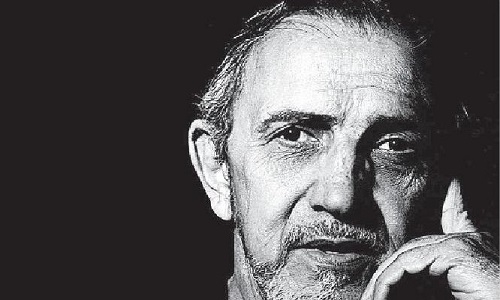Of the secret of art of acting
| Date :12-Mar-2024 |

By Vijay Phanshikar
“Acting, one affirms, is an art; the actor is an artist in the theatre. He is both creator and interpreter of another’s creation. The actor’s instrument is his body; in this he is at once the creator and thing created ... The actor has to aspire to the state of mind of a Poet, a Lover or a Fool! ...” - Ebrahim Alkazi, Theatre legend 1925-2020, excerpts from a speech at a seminar, quoted by his daughter Amal Allana, in his biography ‘Ebrahim Alkazi: Holding Time Captive’ (Part 4, pages 324-328), Vintage (Penguin Random House) 2024,
SUCH comprehension is universally shared by most people who understand theatrical art and its multidimensional complexity. But when an Ebrahim Alkazi states the universally-acclaimed perception, then it assumes an altogether different -- or say finer -- nuance. Alkazi, who described himself as a ‘Maharashtrian Arab’ (thanks to his descent), became an international theatre legend because of the all-encompassing cultural inclusion he brought into understanding of theatre (acting) as an art form. Like most other thinkers of theatrical art, Alkazi, too, felt that most potent and the only instrument the actor has is his -- or her -- body through which he makes possible complex expressions that stage-craft requires. But then, as he said, the quintessential attributes the actor must possess are those of a Poet, a Lover or a Fool ! All these attributes remain rooted in the idea of a person with a free-bird mental process -- unencumbered by norm or form, and unafraid of storm ..., so to say!
In mundane words, therefore, all the three attributes almost belong to madness -- may be of a mild kind. Long ago, iconic actor Prabhakar Panshikar also had stated more or less similar reflections on the art of acting, in effect, that there are three persons at work at one when a play is being staged -- the actor, the character, and the inner-person of the actor looking at his or her own artistic expression of the moment. And who will forget what thespian Dilip Kumar said about acting, in effect, that he had evolved into the habit of looking at himself from a third person’s point of view as he played out his characters (and improvise on the trot as time passed)! Ebrahim Alkazi, however, goes a step or two further up when he expects the actor to be a poet of sorts, a lover or sorts -- or a fool of (possibly all) sorts !!! This can be interpreted thus: With a poetic bent, the actor may be able to achieve the lilt very much essential for theatrical presentation; with the mind-set of a lover, the actor may be able to inject a lot of intimate passion into his expression; and, he must also be foolish enough to be able to develop an indefinable innocence or unobliviousness to what the world may think of what he or she is doing on-stage. ...!
Of course, the seminar referred to here was about acting as an art in which persons can be trained effectively. Some may or may not agree with the premise of training, in the first place, insisting that theatrical art is something that comes to some only naturally. This school of theatrical art as ‘natural’ may not have been left with many defenders by now. That is the reason acting is being taught through systematic training programmes all over the world. No matter that, it is not easy to brush aside what Ebrahim Alkazi had said: The actor’s instrument is his body; in this he is at once the creator and thing created ... The actor has to aspire to the state of mind of a Poet, a Lover or a Fool! Of course, theatre has changed in form and content the world over. Yet, anybody will agree with Alkazi’s premise on what an actor should be -- with a three-dimensional capability to be good at his or her art.